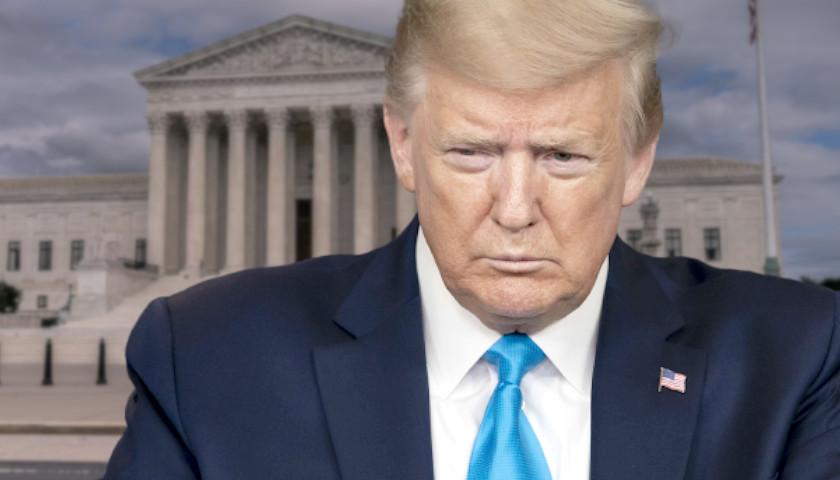by Mark Bauerlein
Last week in a dinner speech at the Mayflower Hotel in Washington, D.C., Princeton professor Robert George had some advice for social and religious conservatives: “You must fight.”
It was an exhortation that does him no good in the academic world. A distinguished Ivy League scholar and teacher isn’t supposed to talk about the “culture war.” George has strong connections with the established conservative world, too, which balks at the confrontational style. In my year at the James Madison Program at Princeton, which George directs, visitors included George Will, Steve Forbes, and Andrew Napolitano. But the other night was a firm declaration of resistance.
It was fantastic.
One of the people cheering at the end was William Barr, who delivered his own call to arms last month in a speech at Notre Dame. “I think we all recognize that over the past 50 years religion has been under increasing attack,” he said. Traditional believers have felt the “force, fervor, and comprehensiveness of the assault” again and again. Barr called it “organized destruction,” a deliberate campaign to destroy the religious foundations of American society.
What progressives have rosily characterized as a noble movement for equality and freedom is no such thing, Barr argued. It is a coordinated effort of academia, popular culture, mass communication, and the entertainment industry to remove faith and the faithful from the public square, forever.
It, too, was a marvelous speech. No soft rejoinders to people who want to force bakers to design same-sex cakes, no attribution of benign motives to the other side.
In the last year I have seen Tucker Carlson deliver three speeches. In the first, in St. Louis, he described his transformation from young libertarian to middle-aged social conservative who believes in God, family, and country, but in a self-mocking mode.
“I was so stupid back then,” Carlson said, “because I actually believed liberals when they professed to favor free speech, individual rights, and religious conscience” (I’m paraphrasing from memory). It was exactly what we wanted to hear—not only the commitment to a finer conservatism, but also an acknowledgment that what has counted so long as conservative inside the Beltway is a smug form of naïveté.
Carlson knows better now; he recognizes the actual character of the opposition. It has changed him. The boyish quibbler of the ’00s has become the moral force one sees every weeknight. In the third speech, which he gave at an American Greatness/New Criterion conference in Washington, D.C., last month, he admitted that there are very few places he can dine in the city and not fear an attack or something done to his food. An Antifa gang stormed his house in November 2018. But 10 seconds in Carlson’s presence tell you he isn’t going to waver.
I wonder if these figures realize how extraordinarily satisfying and innervating their statements are to people who have experienced progressivism in America as a steamroller leveling their workplaces, schools, and shopping zones for a good half-century. Did Lindsey Graham suspect that social conservative households would erupt in cheers when he finally had enough of the Kavanaugh hearings and thundered his objections? Did Donald Trump suspect in 2015 that a simple insistence on national borders would resound so loudly among Americans who regard the United States as their home, not their accidental place of residence?
How can other Republican leaders and conservative commentators remain unaware of how much social, religious, and national conservatives want them and need them to assume a fighting stance? Those of us who work in professional spaces—academia, big business, medicine, mainstream media, public schools—retreated into foxholes years ago, and we await backup.
Two years ago, after speaking to a small religious group in Atlanta, my host drove me home but not before asking how I got along with my colleagues.
“Just fine,” I answered, ”Emory is a good place, with mostly good people. Sure, they can’t understand how anyone could have supported Trump, but they never mistreat me.”
“Wait,” he interrupted, ”they don’t get it?”
“About Trump—no,” I said, “but that goes for just about any college campus you can name.”
He didn’t hesitate: “Then it’s war.”
He wasn’t excited, he wasn’t angry, just matter-of-fact. His logic was pat. If a political opponent won’t listen to you, if he considers your politics inexplicable, it isn’t so big a leap to judging you indecent, repugnant, deplorable. From there, yes, it’s war. Unless, of course, you give up before the fighting even starts, or you’ve become so accustomed to losing that you don’t even imagine that the winners despise you no matter how many times they beat you down.
This summer at a conference at a well-known university, I sat down with the head of a new institute on campus who was just as blunt. For some reason, the 2012 ticket came up, Mitt Romney and Paul Ryan. He offered a summary remark: “At this point, if you can’t answer yes to a basic question, nothing else counts. Doesn’t matter where you stand on taxes, foreign policy, regulations . . .” He then shook his head.
“What’s the question?” I asked.
“Are you ready to fight?”
“That’s it?”
“Yeah,” he replied with a shrug, “that’s it.”
No more compromise, no more calls for bipartisanship. Republicans have been outfoxed on that score every time. Senator Lamar Alexander (R-Tenn.) is retiring—good. The old liberal promises of compromise and conciliation were and are false (remember the pledge that when we get same-sex marriage we’ll be done with sex and gender issues?). Barack Obama’s reasonableness was a disguise, Joe Biden’s Scranton liberalism a pose. Obergefell was but a step in the never-ending reduction of traditional sex roles. The inclusion of minority literature and history in the curriculum during the 1970s and ’80s wasn’t to serve the ideals of diversity. It was to redefine America as a racist creation from 1619 to the present.
The Left has been making war by other means for 50 years, changing history textbooks, peddling films that mock fatherhood and faith, designing bogus studies that show pay gaps and systemic racism. But it’s been a war nonetheless, and a successful one because conservative leaders and intellectuals have failed to assess the other side. And when conservatives have identified it for what it is, as in Pat Buchanan’s prescient 1992 speech, they were made a laughingstock in the press.
No more. Awakened conservatives don’t care what ABC News says about them. They’ve learned the Alinsky tactics of the Left, and they acknowledge that Alinsky was a brilliant man. But they have also discovered that Alinsky methods fail if the target refuses to be intimidated and announces that if you continue this war we will march into battle.
As the parade of illiberal violations of civic norms continues and leftists proceed from one malicious absurdity to another (“collusion,” Michael Cohen, James Comey, Stormy Daniels, the Covington Catholic High School boys, Kavanaugh, Jussie Smollett . . .), more and more conservative leaders are gaining the adversarial confidence that liberal politicians and intellectuals have enjoyed for decades. It is a great awakening, and it’s spreading.
– – –
Mark Bauerlein is a senior editor at First Things and professor of English at Emory University, where he has taught since earning his Ph.D. in English at UCLA in 1989. For two years (2003-2005) he served as director of the Office of Research and Analysis at the National Endowment for the Arts. His books include Literary Criticism: An Autopsy, The Pragmatic Mind: Explorations in the Psychology of Belief, and The Dumbest Generation: How the Digital Age Stupefies Young Americans and Jeopardizes Our Future.
Image “The Continentals,” a painting by Francis Blackwell Mayer (1827 – 1899).





